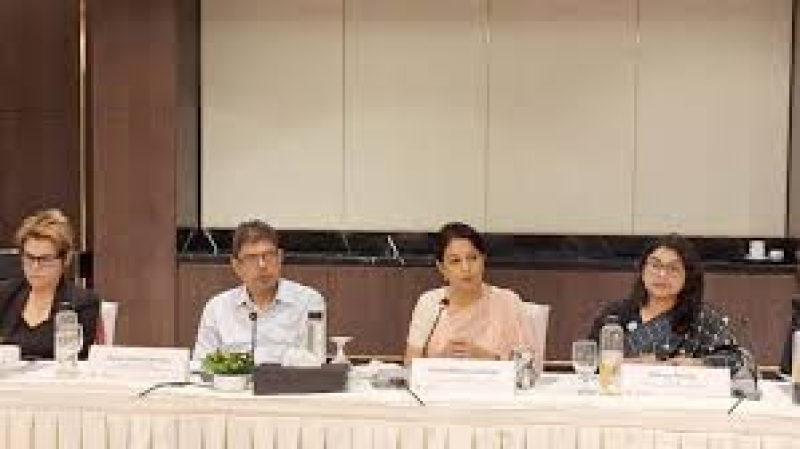- UN Calls for Calm in Bangladesh After Protest Leader’s Killing |
- DMP issues 7 traffic directives for Osman Hadi’s Janaza |
- Vested quarter fuelling chaos to impose new fascism: Fakhrul |
- Hadi’s namaz-e-janaza at 2:30pm Saturday |
- Jashore’s Gadkhali blooms with hope; flowers may fetch Tk4 bn |
Rizwana Urges Action Against Plastic Pollution, Clarifies Govt Stance

Syeda Rizwana Hasan, Adviser to the Ministry of Environment, Forest and Climate Change and Water Resources, has emphasized the urgent need for comprehensive action to address plastic pollution in Bangladesh.
She made the statement during her keynote address at a conference titled "From Policy to Action: Integrated Approaches for Combating Plastic Pollution and Marine Litter in Bangladesh," held on Wednesday at the Department of Environment in Agargaon.
Rizwana clarified that the government has not instituted an outright ban on single-use plastic items but is actively working to reduce their usage. She underscored the importance of encouraging local entrepreneurs to develop sustainable alternatives as part of a gradual shift away from single-use plastics.
"Single-use plastics are not only difficult to manage due to a lack of proper waste disposal systems, but they also harm our environment. Our focus is on reducing reliance on these plastics while nurturing safer, more sustainable solutions," she said.
The adviser also dismissed rumors that the government had imposed a blanket ban on all single-use plastics, calling such claims "blatant lies" that cause unnecessary anxiety within the manufacturing community.
Rizwana highlighted the environmental dangers posed by plastic waste, stating, "Plastic does not vanish; it degrades into microplastics that contaminate water and food sources, entering our food chain through marine life. This is a collective responsibility — one that requires action from individuals, businesses, and the government alike."
She pointed out that alternatives to most single-use plastic products are already available in Bangladesh, urging businesses to commit to reducing their plastic footprint. She also raised concerns about the unsafe working conditions in illegal plastic production sites, particularly in Old Dhaka, and called for an organized approach to phasing out these operations.
"An integrated solution is essential," Rizwana said. "While banning certain items is important, we must equally prioritize efforts in recycling, reuse, and alternative production. The Finnish government has offered to assist us in setting up a state-of-the-art recycling facility, and we plan to initiate discussions with them shortly."
She also appealed to business leaders to collaborate on a time-bound action plan for eliminating single-use plastics well before the target year of 2030.
Rizwana expressed concern over recent resistance to anti-plastic regulations and condemned the attacks on Department of Environment officials who were attempting to close illegal polythene bag factories. "We cannot allow such violence to disrupt our efforts. We need unity in this fight, and a complete ban is achievable if we work together for the greater good of our nation," she emphasized.
The conference gathered policymakers, environmental experts, and stakeholders from various sectors to brainstorm practical strategies for tackling plastic pollution and marine litter in Bangladesh, with a strong focus on actionable outcomes.

